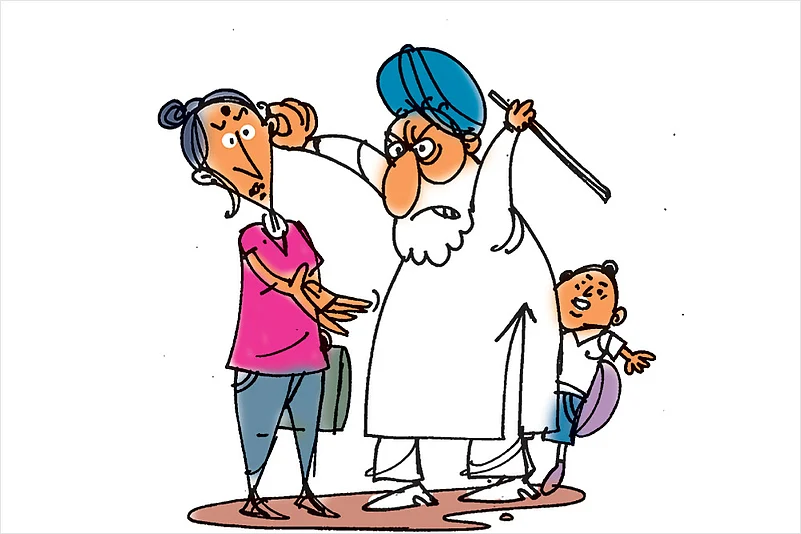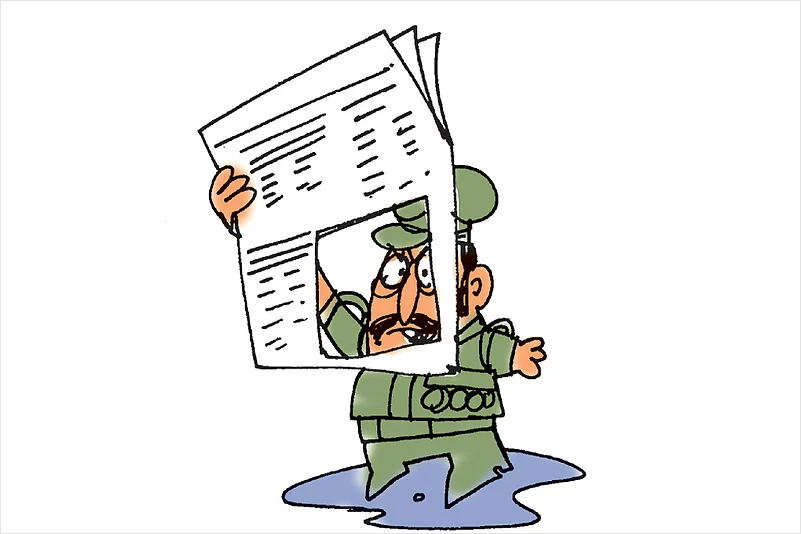The Indians The Chinese Just Can’t Hate
Ties between India and China may not be friendly at the moment because of issues like the border dispute and the Dalai Lama’s visit to Arunachal, but that has not cast its shadow on cultural ties between the two neighbours. Indian movies and television serials are a big draw in China. After Aamir Khan’s 3 Idiots and PK stormed the Beijing box-office, his latest film, Dangal has opened to rousing reception at Chinese theatres. Not only this, even Indian soap operas and mythologicals are a big hit with Chinese audiences. Popular Indian TV serials with Chinese subtitles, such as Mahabharat, Devon ke Dev and Nagin have huge fan following in the land of dragons. Viewers are not only enamoured of the story-lines, but are also impressed with the acting skills of “gorgeous looking” Indian actors. “Even the evil characters look good,” says one viewer. “You just cannot hate them.”

No teaching in garish clothes in Punjab
Any diktat on what to wear may sound primitive, but that has not deterred education department mandarins in Punjab from issuing a dress code for women teachers. A recent directive debars teachers from wearing jeans, tops or any bhadkeela pehrawa (bright clothes) or fashionable dresses in government schools. The directive says that such outfits ‘excite’ students and are a bad influence. The circular, issued to all district education officials, says that the department had been receiving complaints about garish clothes worn by women teachers, who constitute over half the work force. They have been asked to conduct regular checks to ensure the directive is followed. As expected, the diktat has sparked outrage. Women teachers termed it “Talibani”, “immature” and “reactionary”, forcing authorities to promise a withdrawal!

Get a taste of Yogi Mango now
UP Chief Minister Yogi Adityanath is in the same league as Narendra Modi, Sachin Tendulkar and Aishwarya Rai. Haji Kalimullah, the famous mango grower, has developed a new variety of Dussehri mango and named it after Yogi. Looks wise, the Yogi mango is slender, though its taste is yet to be known. Kalimullah, however, is hopeful that the fruit, which is yet to ripen, will taste good. The fruit grower’s talent in grafting and cultivating varieties of mango earned him a Padma Shri, besides the title of Udyan Pandit, conferred by the UP government. He has been growing mangoes in his five-acre orchard since 1957, which has a century-old prized tree on which he has been developing the craft of growing different varieties since 1987.

A power garden to ward off evil eye
Politicians have been known for following vaastu shastra to ensure good luck. That is why it came as no surprise when Telangana Chief Minister K. Chandrasekhara Rao got a lovely garden developed strictly in accordance with Vaastu principles at the party headquarters in Hyderabad. From Taiwan’s Lucky Ficus to olive trees from Italy, exotic plants from as many as 25 countries, including Australia, Indonesia, Thailand, Mexico and the US, have been planted on the premises of Telangana Bhavan on Banjara hills. For the uninitiated, Lucky Ficus brings one luck, while olives are considered auspicious. It is also believed that the olive tree is not only a symbol of peace but repels the evil eye. Telangana Bhavan was inaugurated way back in 2006 before the new state came into being. But now, it has been given a makeover, with the Vaastu-friendly plants and trees strewn all over its campus.

Pak censor draws a blank
An opinion piece in The International New York Times recently upbraided the military administration in Pakistan but it was conveniently censored by the local publisher by replacing it with a blank space. In a country where criticisng the army often invites trouble, the article, titled Triangle of Hate, written by Mohammed Hanif, had lambasted the military for parading a former Taliban spokesman before television cameras to claim that the militants were bankrolled by India. The print censorship, however, did not prevent the article from reaching readers, as its online version started trending on social media soon thereafter.
First Nepali-origin UK national to be parliamentary poll candidate
Bachchu Kailash Kaini will become the first British national of Nepali-origin to contest in the forthcoming parliamentary elections in the UK on June 8. A doctor by profession, Kaini had served as a Labour councillor, but would now contest as its candidate from Dartford constituency. He says issues relating to health, education, transport and urban development would be his priority. Kaini moved to the UK in 2005 and had been an active member in the Labour Party since 2013.
Mminister under wasp attack
Sophisticated gadgets and improved intelligence gathering protect political leaders. But how easily a swarm of wasps can breach security and pose a threat was proved at Sri Lanka’s Nuwara Eliya resort. The deputy minitser of public administration and management, Susantha Punchinilame, and his family, were subjected to a severe attack by a swarm of wasps while on holiday. Two security guards, some close associates, the cook, all were bitten by the ferocious wasps when they tried to intervene. The breach in security is worthy of a topic of debate in the Sri Lankan parliament!

Borders Aflame
This could well be the worst week for Pakistan’s neighbourhood diplomacy. Barring China, Pakistan got involved in either armed clashes or in a war of words with India, Iran, Afghanistan—all the other three countries it shares a border with, adding fresh strains in an already volatile region.
On Tuesday, India managed to get the International Court of Justice to issue a stay on the death penalty on its retired naval officer, Kulbhushan Jadhav. India claims he was abducted from Iran while on work and later accused of spying. A Pakistani court had sentenced him to death and denied consular access to Indian officials from reaching out to Jadhav. The ICJ’s ruling vindicates the Indian stand that Pakistan had violated established international consular norms of behaviour.
In the past few days, Pakistan had also been involved in armed exchanges with both Iran and Afghanistan, leading to several deaths.
Ten Iranian border guards were killed and one abducted by Pakistan-based militants from the Iran-Pakistan border area last month. The Iranian army has warned Pakistan that if it fails to restrain Sunni militants carrying out cross-border attacks in Sistan-Balochistan area, Tehran will be forced to take unilateral action within Pakistan.
Afghanistan too joined in, as it ran down Islamabad’s tall claims that it managed to kill 50 Afghan soldiers in retaliation to this week’s border clashes between the two sides. According to Kabul, only two of its soldiers were killed in retaliatory fire by the Pakistanis. The war of words has only added to fresh strains in their already deteriorating ties.
China has invested over $60 billion on the China-Pakistan Economic Corridor project, part of China’s One Belt One Road (OBOR) initiative. But rising tension in the area, especially in the restive Balochistan, is making Beijing nervous about the area’s stability and the Pakistani army’s ability to bring it under control. Though China is trying to find ways to involve India in OBOR, it is the rising tension in Islamabad’s relations with both Tehran and Kabul that has begun to worry Chinese investors.
Even Pakistani commentators have been vocal in their government’s handling of relations with its neighbours, arguing how the situation, if allowed to deteriorate further, will force Islamabad to focus more on its security and border management than on mending its battered economy.
Illustrations by Sajith Kumar


























